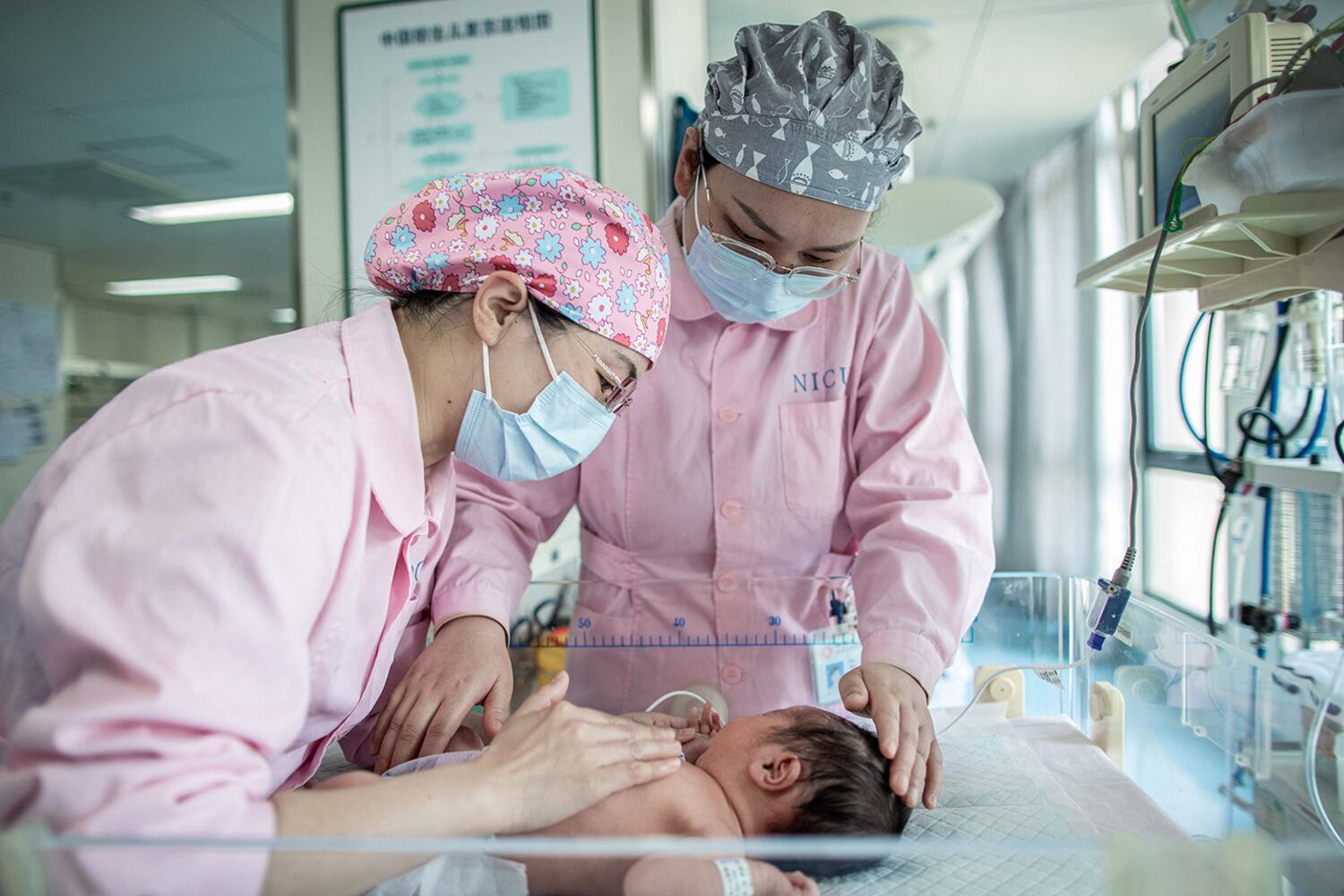
Authorities in the western Chinese province of Gansu have started offering cash payouts of up to 100,000 yuan (US$13,800) to families who have another baby in a bid to boost flagging birth rates.
“Subei county will be offering birth and maternity leave, medical assistance and other rewards to families with two or three children who are permanently resident in the county,” ruling Chinese Communist Party county health official Shi Wanjun told the state-run China News Service on Nov. 18.
Shi said the government would cover medical expenses for childbirth, including a hospital stay.
Eligible families could receive cash support up to a maximum of 100,000 yuan, the report said.
The move is part of local government plans to “steadily implement the three-child policy, boost birth rates … and deal with the aging population,” it quoted Shi as saying.
Faced with plummeting birth rates, nationwide kindergarten closures and young people who are increasingly choosing to stay single, authorities in China last month started rolling out incentives to encourage more people to have kids, calling for “a new marriage and childbearing culture.”
Communist Party leader Xi Jinping has called on women to focus on raising families, and the National People’s Congress has been looking at ways to kick-start the shrinking population, including flexible working policies, coverage for fertility treatment and extended maternity leave.
In Subei county, the authorities are planning to hand out cash subsidies of up to 2,000 yuan (US$275) a month in the first year of a new baby’s life, and up to 3,000 yuan (US$413) a month in its second year, the China News Service said.
One-off bonus payouts of up to 10,000 yuan (US$1,380) per baby will be offered to families who have left the county, but who return to register a newborn child there, rather than seeking registration in a city with better education, public services and economic opportunities, according to the report.
Remote and rural areas
Remote Subei county is facing particular challenges, with a registered population of just 12,657 at the end of 2023, and less than five new births a month.
A Gansu-based scholar who gave only the surname Yue for fear of reprisals said many local people have left the area to seek economic opportunities in cities, leaving behind a rapidly aging population.
“Subei is a pastoral area that is home to the Yugur people, typical of an ethnic minority border region,” Yue said. “Birth rates are at much more normal levels in central, eastern, northern and southern China.”
Yue said the turnaround from the strictly enforced “one-child” policy that ended in 2016 to the current drive to encourage births has been startling.
“The birth rate stabilized for a few years in the wake of the [1966-1976] Cultural Revolution, but then the family planning controls started, which meant we couldn’t have lots of children,” he said.
“They started out saying the policy would likely continue for 100 years, and we all had to fill out application forms before we could have kid,” he said. “They promised us then that the state would take care of us in retirement.”
“Now, they’re talking about birth subsidies. Can you believe it?” Yue said.
RELATED STORIES
China’s bid to boost births doesn’t make sense for many young women
China sees sharp drop in marriages amid economic downturn
Leaked plan reveals bid to get Chinese officials to have more kids
A resident of a rural region in the eastern province of Shandong who gave only the surname Lu for fear of reprisals said birth rates are also falling where she lives.
But she doesn’t think the subsidies will do much to improve the birth rate.
“If people can’t even get by when it’s just them, how is a child going to help them?” Lu said. “A lot of the land has gone, now that young people are moving to cities.”
“Their way of life is different from the older generation, and they can’t get by just on what they make from farming,” she said.
‘Just gimmicks’
Authorities in the Hunan provincial capital Changsha announced in July that they would be offering childcare subsidies worth up to 10,000 yuan per child for families who have three or more children.
China’s population grew by just 480,000 in 2021, while the number of couples getting married fell rapidly in the first nine months of 2024 by nearly 1 million registrations compared to last year, amid an economic slump and changing attitudes.
China registered 4.747 million marriages in the three quarters ending Sept. 30, a drop of 943,000 year-on-year.
First marriages have plummeted by nearly 56% over the past nine years, according to the 2023 China Statistical Yearbook. The trend is contributing to a sharp decline in birth-rates amid a shrinking, aging population.
Young people are increasingly avoiding marriage, having children and buying a home amid a tanking economy and rampant youth unemployment, they told RFA Mandarin in recent interviews.
Lu said there is also a lack of public trust in the government’s ability to pay out on its promises that could mean few take up the offer of subsidies and other benefits.
“The subsidies they talk about are just gimmicks,” Lu said. “Nobody takes them seriously.”
Translated by Luisetta Mudie.
